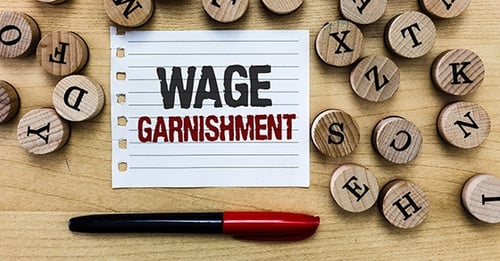Powell Tax Law Blog

Understanding IRS Tax Levies: What You Need to Know
When it comes to unpaid taxes, the Internal Revenue Service (IRS) has several tools at its disposal to collect what's owed. One of the most serious actions the IRS can take is imposing a tax levy – the seizure of your property including wages.
“The term ‘tax levy’ can be intimidating for taxpayers because IRS levies can have a devastating effect on individuals and businesses alike,” says experienced tax attorney Steve Powell. “With professional guidance, however, taxpayers can stop or resolve a tax levy effectively.”
This article explains what an IRS tax levy is, how it works, and what you can do if you're facing one.
What is an IRS Tax Levy?
An IRS tax levy is a legal process by which the IRS seizes a taxpayer's property to satisfy unpaid tax debts.
“The Internal Revenue Code (IRC) authorizes levies to collect delinquent tax. See IRC 6331. Any property or right to property that belongs to the taxpayer or on which there is a Federal tax lien can be levied, unless the IRC exempts the property from levy,” says the IRS.
It's important to distinguish between a tax levy and a tax lien:
- A tax lien is a claim the government makes on your assets as security for unpaid taxes.
- A tax levy is the actual seizure of these assets to settle the debt.
The IRS notes that they file a public document, the Notice of Federal Tax Lien, to alert creditors that the government has a legal right to your property. While a tax lien may affect your credit, an IRS levy is not a public record.
Types of Assets Subject to Tax Levies
The IRS has the authority to seize various types of assets through a tax levy. These can include (but are not limited to):
- Bank accounts and financial accounts
- Wages and salary income (through wage garnishment)
- Social Security benefits
- Tax refunds and other federal payments
- Real estate (such as homes or land)
- Vehicles and other personal property such as boats and motorcycles
- Investment accounts
- Retirement accounts with some limitations
- Accounts receivable for business owners
- Rental income
- Life insurance policies
- Dividends
It's crucial to understand that there are two types of levies: continuous and one-time.
Continuous levies, like wage garnishments, remain in place until the debt is resolved.
One-time levies, such as bank account levies, only apply to funds available at the time of seizure.
The IRS Tax Levy Process
The process of imposing a tax levy typically follows these steps:
- Assessment of Taxes Owed: The IRS calculates the taxpayer's liability based on filed or substitute returns.
- Notice and Demand for Payment: The IRS sends a bill requesting payment of the taxes owed.
- Failure to Pay: If the taxpayer neglects or refuses to pay the amount owed, the IRS moves to the next step.
- Final Notices: The IRS sends a "Final Notice of Intent to Levy" and "Notice of Your Right to a Hearing" at least 30 days before the levy begins.
- Levy Execution: If the issue remains unresolved, the IRS proceeds with seizing assets.
As far as the all important “final notice”, the IRS may give you this notice in person, leave it at your home or your usual place of business, or send it to your last known address by certified or registered mail, return receipt requested.
Common Triggers for an IRS Tax Levy
Several situations can lead to the IRS imposing a tax levy.
“If you do not pay your taxes (or make arrangements to settle your debt), and the IRS determines that a levy is the next appropriate action, the IRS may levy any property or right to property you own or have an interest in,” explains the IRS.
Here are some common triggers for an IRS tax levy:
- Unpaid taxes after multiple notices.
- Ignoring communication from the IRS or failing to set up payment arrangements.
- Defaulting on agreed payment plans.
- Substantial unpaid employment taxes for businesses.
- False statements on tax returns.
- History of non-compliance.
- Hidden or transferred assets.
- Expired statute of limitations approaching.
“It's crucial to take IRS notices seriously and respond promptly to avoid escalation to a levy situation,” says Powell.
How to Stop or Resolve a Tax Levy
If you're facing a tax levy, there are several options to resolve the situation:
- Paying the Debt in Full: This is the most straightforward solution, immediately resolving the issue by clearing the owed amount.
- Setting Up an Installment Agreement: You can arrange to make monthly payments to the IRS, which may lead to the release of the levy.
- Submitting an Offer in Compromise: This involves negotiating with the IRS to settle your tax debt for less than the full amount owed.
- Proving Financial Hardship: If you can demonstrate that the levy creates undue economic hardship, the IRS may release it.
- Requesting a Collection Due Process Hearing: You have the right to file for a hearing within 30 days of receiving the final notice, which can temporarily halt the levy process.
“The IRS’s job is to collect unpaid taxes as quickly and efficiently as possible, but many taxpayers are unaware of the options available to them,” says Powell. “Lack of knowledge can work against you, which is why it’s important to understand all of the available options, such as installment agreements and offers in compromise.”
Impact of a Tax Levy on Finances
The consequences of a tax levy can be severe and far-reaching:
- Your bank accounts may be frozen, leaving you without access to your funds.
- A significant portion of your wages could be garnished, making it difficult to cover living expenses.
- Personal property, including your home or vehicle, could be seized, leading to severe financial strain.
- A tax levy can have long-term effects on your creditworthiness and overall financial stability.
Preventing an IRS Tax Levy with Professional Help
The best way to deal with a tax levy is to prevent it from happening in the first place. Here are some strategies:
- Stay current with your tax filings and payments.
- Respond promptly to any IRS notices you receive.
- If you're unable to pay your taxes in full, explore payment options with the IRS before they escalate to collection actions.
- Seek professional assistance if you have unresolved tax debts or disputes.
“Dealing with an IRS tax levy can be complex and stressful. Tax laws are very intricate, and the consequences of mishandling a levy situation can be severe. This is where professional help becomes invaluable,” explains Powell.
Tax attorneys specialize in navigating these complex situations. They can:
- Interpret IRS notices and explain your rights and options
- Negotiate with the IRS on your behalf
- Help you explore all available resolution options
- Ensure that proper procedures are followed and your rights are protected
- Assist in preparing necessary documentation and financial statements
By enlisting the help of a tax professional, you can often achieve a more favorable outcome and alleviate much of the stress associated with tax levies.
Powell Tax Law Can Help You with IRS Tax Levies
An IRS tax levy is a serious matter that can have significant financial and personal consequences. Understanding what a levy is, how it works, and what options are available to resolve it is crucial for anyone facing tax debt issues.
“Remember, the key to avoiding a tax levy is to address tax problems early and maintain open communication with the IRS,” says Powell.
If you're facing a tax levy or are concerned about potential IRS collection actions, it's essential to act quickly and seek professional guidance. Don't let tax issues escalate to the point of asset seizure.
At Powell Tax Law, we specialize in helping individuals and businesses navigate complex tax situations, including IRS tax levies. Our experienced team can provide the expert guidance you need to resolve your tax problems and protect your assets.
Contact Powell Tax Law today for a confidential consultation and take the first step towards resolving your tax issues.







